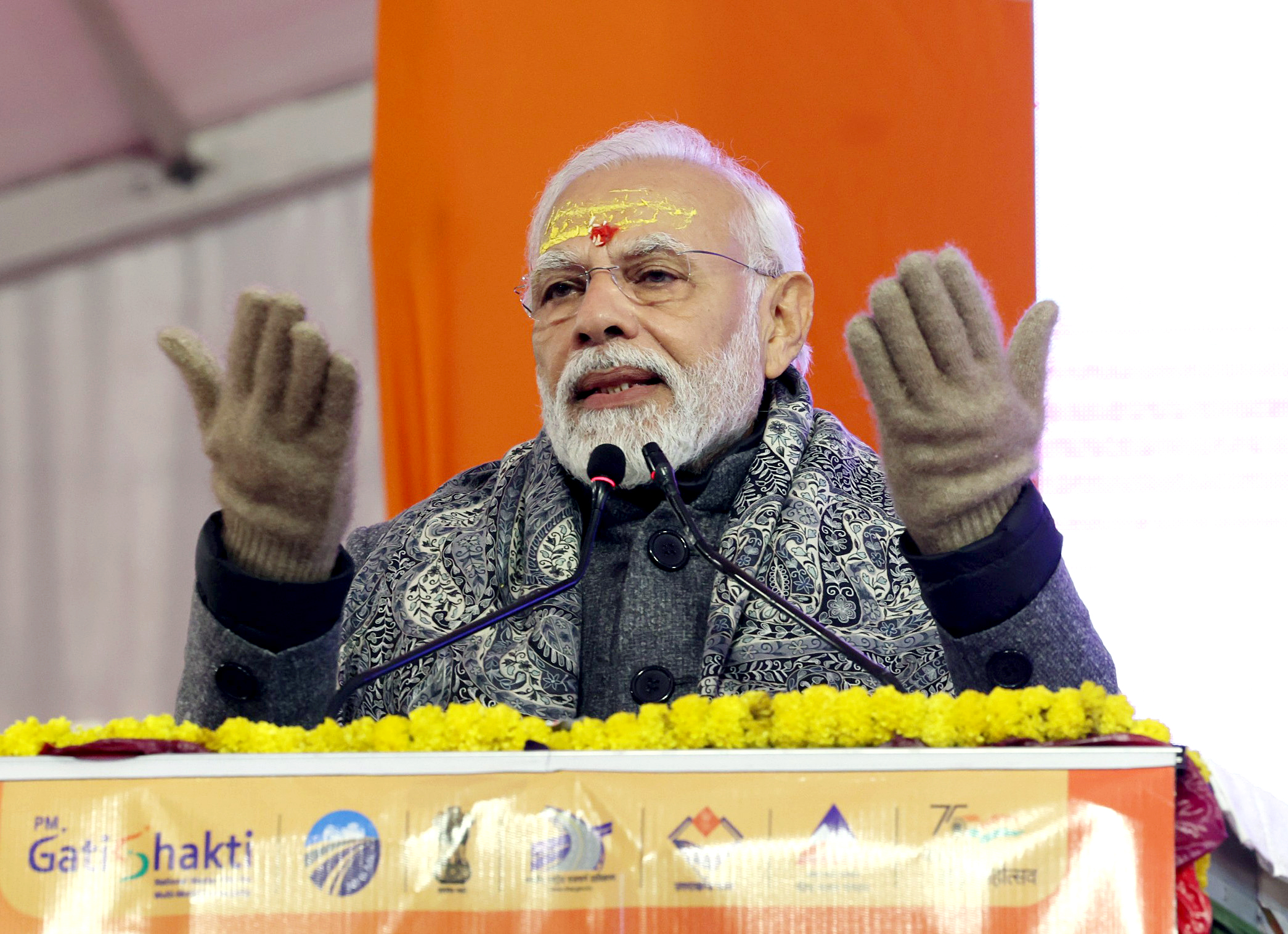PM’S presence on India Tibet Border sends clear signal to Beijing

Amid the aggressive behaviour displayed by China in the Taiwan Strait and the mention of Galwan in their Politburo deliberations, has been quietly noted by India. So as an important step India has started stressing on improving connectivity not only towards the Indo Tibetan border/ LAC between the IA and thev PLA butb also along the Himalayas from Ladakh to Arunachal. The government has commenced the construction of six new roads stretching over 2,178 kilometres in Arunachal Pradesh. The development has come amid heightened tensions along the LAC since May 2020, when China deployed a large number of troops and heavy equipment to change the status quo in eastern Ladakh. Military commanders have advised that India must continue to expand its infrastructure in the regions bordering Tibet in what will be a strong signal to Beijing to negotiate, finalize and demarcatev both the Indo Tibet border and China Tibet border.
With Chinese President Xi Jinping’s forcibly usurping a third term, it may just be the the beginning of a more assertive China. Therefore India has already initiated various diplomatic and strategic manoeuvres to deal more effectively with Beijing’s aggressive future designs. So as to send a strong balanced signal to Xi Jinping, Prime Minister Narendra Modi’s presence at a village on the India-Tibetan border was well planned. PM address at Uttarakhand’s Mana village, which is the last Indian village on the India-Tibet border, is being viewed by diplomats as a crucial development amid the lingering LAC (Line of Actual Control) row between New Delhi and Beijing. Modi’s addressing a rally at Mana was a blunt message to Beijing that India was determined and ready to protect its borders from any kind of aggression by the Chinese through Occupied Tibet.
Galwan response against the PLA aborted salami slicing actions, clearly demonstrated New Delhi’s resolve to counter any challenges, and also sent out strong signals to Beijing over its LAC misdeeds.
At Manna, nothing could have underlined India’s strong message better than these words of PM Modi: “Every village located in the border areas will be now considered as the first village of India.” He referred to all the villages situated near international borders ie Indo Pak, Indo Tibet, Indo Myanmar and Indo Bangladesh. “In fact, the message was sent out to Beijing that India will remain focused on villages close to LAC and will not, therefore, tolerate any kind of aggressive action there,” explained the diplomats. By laying the foundation stone for road widening projects worth Rs 1,000 crore in the areas including Mana village, the PM sought to signal that India was high on action in terms of safeguarding its borders with Tibet against China. The road widening projects near the Indo Tibet border will help locals and defence forces alike.
According to the Prime Minister’s Office (PMO), the two road widening projects—from Mana to Mana Pass (NH07) and from Joshimath to Malari (NH107B)—will be another step towards providing last-mile all-weather road connectivity to our border areas. What is also of importance is that apart from boosting connectivity, these projects will also prove beneficial from a strategic point of view.
In another important development, PM Modi in Gujarat interacted with Indian envoys from 118 countries, both ambassadors and high commissioners, during which he laid out the vision for India’s foreign policy on Friday. Top sources told this newspaper that a possible Chinese strategy under Xi Jinping’s third term was elaborately discussed. during the meeting. “India’s diplomatic response and preparedness were also discussed, during which the Indian leadership made valuable suggestions,” sources said. External Affairs Minister S. Jaishankar held a separate meeting with India’s ambassadors to China and the US. “The reports about China ready to pursue a more Diplomats were briefed about what India’s strategy would be like. “More resolutely and with more determination, India needs to counter China’s challenge. This is what was shared with the envoys,” sources said. Only two days ago, EAM Jaishankar delivered a blunt message to China, saying that peace and tranquillity on the Indo Tibetan border areas clearly remained the basis for normal relations between India and China. Jaishankar’s statement was quite important as it came amid reports that China would be more aggressive under Xi Jinping in his third term.



